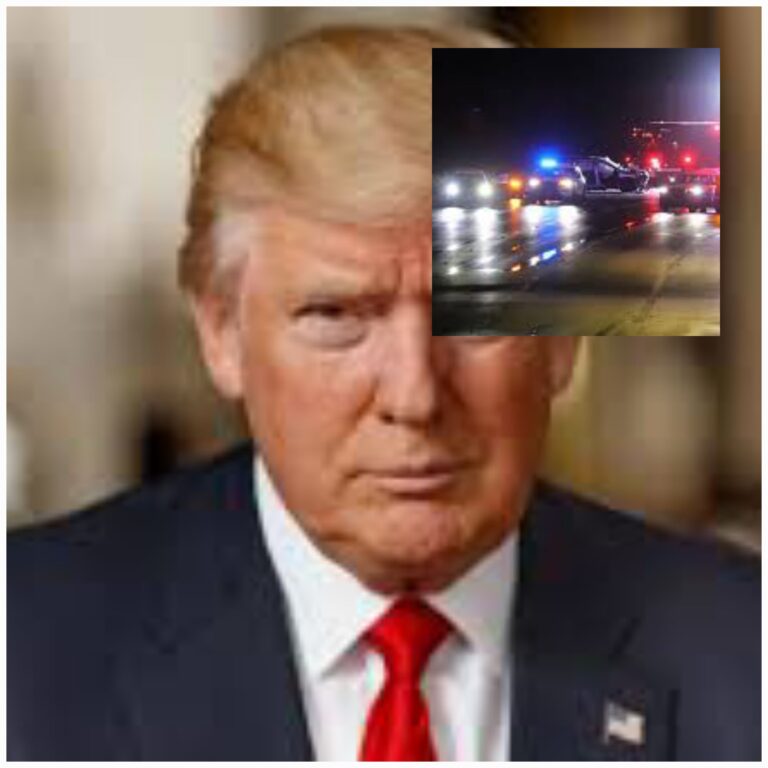BREAKING: Donald Trump Involved in Unexpected Incident – You Won’t Believe What Happened!”
Donald J. Trump, the 45th President of the United States, served from January 20, 2017, to January 20, 2021. Before his presidency, he was a businessman and television personality, known for his real estate empire and hosting the reality TV show *The Apprentice*. Trump’s political rise was unconventional, with his candidacy in the 2016 election surprising many. However, he successfully ran as the Republican nominee and defeated Democratic candidate Hillary Clinton in a closely contested race, winning the Electoral College despite losing the popular vote.
### Early Life and Career
Donald John Trump was born on June 14, 1946, in Queens, New York, into a wealthy family. His father, Fred Trump, was a successful real estate developer, and Donald was groomed to take over the family business. After graduating from the Wharton School of the University of Pennsylvania in 1968, he joined the Trump Organization and quickly made a name for himself in the real estate industry. Over the years, he expanded his holdings, including high-profile properties such as Trump Tower in New York City, luxury resorts, and golf courses.
### Presidential Campaign and Election
Trump announced his candidacy for president in June 2015, initially as an outsider with no political experience. His campaign was marked by populist rhetoric, often focusing on immigration reform, trade protectionism, and American nationalism. His slogan, “Make America Great Again,” resonated with many voters who felt left behind by globalization and economic change. Trump’s unconventional style—marked by blunt speeches, use of social media, and disregard for political norms—attracted both fervent support and intense criticism.
Trump’s political message tapped into a sense of disillusionment among many working-class voters, particularly in the Rust Belt states like Michigan, Wisconsin, and Pennsylvania, which ultimately helped him secure a narrow victory in the Electoral College. Despite controversies during the campaign, including criticism of his statements about minorities, women, and immigrants, he was able to build a broad coalition of voters who saw him as a champion of economic revival and an opponent of the political establishment.
### Presidency (2017–2021)
Trump’s presidency was deeply polarizing and characterized by a series of bold, often controversial policies. Key moments from his tenure include:
– **Tax Reform**: In 2017, Trump signed the Tax Cuts and Jobs Act, a sweeping overhaul of the U.S. tax code that lowered the corporate tax rate and provided tax cuts for individuals, though critics argued it disproportionately benefited the wealthy.
– **Immigration**: Trump’s administration took a hard line on immigration, including attempts to build a wall on the U.S.-Mexico border, the controversial “Muslim ban” (a series of travel restrictions targeting mostly Muslim-majority countries), and the “zero tolerance” policy that led to family separations at the U.S.-Mexico border.
– **Foreign Policy**: Trump pursued an “America First” foreign policy, withdrawing from multilateral agreements such as the Paris Climate Accord and the Iran nuclear deal. He also engaged in high-stakes diplomacy with North Korean leader Kim Jong-un, although his efforts to denuclearize North Korea were largely unsuccessful. On trade, Trump renegotiated NAFTA, leading to the creation of the United States-Mexico-Canada Agreement (USMCA).
– **Impeachment**: Trump became the third U.S. president to be impeached by the House of Representatives, in December 2019, on charges of abuse of power and obstruction of Congress related to a phone call with Ukraine’s president. The Senate acquitted him in February 2020.
– **COVID-19 Pandemic**: The global COVID-19 pandemic became a defining issue of Trump’s final year in office. His administration faced widespread criticism for its handling of the crisis, particularly early in the pandemic. Trump frequently downplayed the severity of the virus, clashed with public health experts, and promoted unproven treatments.
– **2020 Election and Aftermath**: In the 2020 presidential election, Trump ran for re-election against former Vice President Joe Biden. Trump lost the election, but he and his supporters claimed the election was “stolen” due to widespread voter fraud—claims that were largely debunked. Despite numerous court cases and recounts, Trump refused to concede and, after the election, encouraged his supporters to march on the U.S. Capitol on January 6, 2021. The storming of the Capitol led to deaths, injuries, and arrests, and resulted in Trump being impeached a second time by the House for “incitement of insurrection.” He was acquitted again by the Senate.
### Post-Presidency
After leaving office in January 2021, Trump remained a central figure in American politics. He continued to claim the 2020 election was stolen and maintained a significant influence over the Republican Party. Trump has hinted at running for president again in 2024 and continues to hold rallies and make public appearances. He also faces multiple legal challenges related to his business practices, actions during his presidency, and efforts to overturn the 2020 election results.
Trump’s legacy remains deeply divisive. To his supporters, he is a champion of economic growth, American sovereignty, and a defender of traditional values. To his critics, he is seen as a dangerous demagogue whose actions undermined democratic norms and institutions. However, his impact on the political landscape is undeniable, with many viewing him as having reshaped the Republican Party in his image and polarized the national discourse in unprecedented ways.
### Conclusion
Donald Trump’s presidency marked a turbulent and transformative period in U.S. history. His time in office reflected the deepening divisions in American society and the rise of populist politics. Whether regarded as a political outsider who challenged the status quo or as a divisive figure who undermined democratic norms, Trump remains a dominant force in U.S. politics, with his influence continuing to shape the national conversation.

